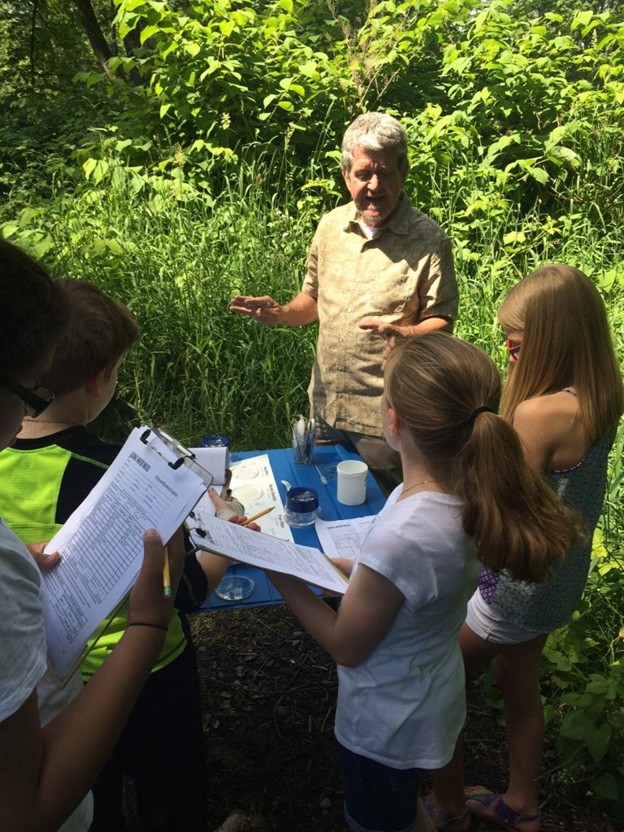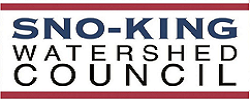Would you like to volunteer to monitor the water quality of local creeks? Sno-King Water Watchers is a Community-Based Water Monitoring program in the King and Snohomish Counties. You can take our classes and become a volunteer water monitor.

Introduction to Water Monitoring:
Learn about streams and watersheds, types of pollutants, how citizens can gather credible data about their local waterbodies, action strategies they can employ to improve water quality while engaged in Community-Based Water Monitoring. This class is a prerequisite for the other classes listed below. One-hour class via Zoom.
Bacteriological Monitoring: What are bacteria? Which ones are harmful? What are standards for E.Coli in Washington waters? Learn about simple, low-cost methods available to citizen scientists to evaluate their local waterbodies for bacteriological contamination. One-hour Zoom or in-person class, followed by field training session.
Physical/Chemical Monitoring: Water temperature, dissolved oxygen, and pH are all important variables for local salmonids and other creatures that live in our streams. Clear, clean water is important too. Learn to use a citizen science kit to monitor these important variables. One-hour Zoom or in-person class, followed by field training session, typically 2.5 hours.
Stream Biomonitoring and BIBI (Benthic Index of Biotic Integrity): Did you know that there is a whole community of insects that live on the bottom of your local streams? Stream bugs are a great indicator of stream health. Learn how to collect, identify, and categorize these creatures. You will learn about the Global Water Watch Stream Biomonitoring method and the BIBI method. One-hour Zoom or in-person class. Separate practical sessions are scheduled for GWW Stream Biomonitoring and BIBI, each typically 3 hours.
Streamflow monitoring: Stream flow is an important variable in stream monitoring. Stream flow varies with stream order, size of watershed, rainfall, stormwater, and other factors. In this class, learn how to measure and calculate stream flow using simple citizen science techniques. Zoom class, also covers Habitat Assessment (below).
Habitat assessment: Trees and shrubs, shading, large woody debris, gravel, rocks, sand, and other factors in a stream and in its riparian zone (the area of vegetation around a stream that affects the stream) have a large effect on the health of the stream and how good of habitat it is for fish and other stream inhabitants. Learn how to use stream habitat assessment checklists to evaluate and document habitat in and around a stream. Learn how to use a “gravelometer” to evaluate stream bottom and a “densiometer” to measure tree canopy cover. Zoom class in conjunction with Streamflow monitoring.
Streamflow & habitat practical: Put your knowledge to use in the field with hands-on practice at a stream site. Lay out transects, calculate average cross-sectional area, measure velocity, and calculate flow in cubic feet per second. Fill out a habitat assessment checklist using a guide. Process rocks and stones through a “gravelometer” to evaluate the stream bottom. Use a “densiometer” and measure tree canopy cover. Field session, 3 hours.
For class availability, scheduling and registration, please contact us at the email below.
Registration: To register, e-mail snokingwatershedcouncil@gmail.com. Registration fee for all classes is $50 for the standard series, payable via check or PayPal. This includes class registration, all Zoom classes, electronic versions of class manuals, and printed manuals on request. Scholarships or discounts are available.
The Sno-King Watershed Council is an all-volunteer, 501c3 non-profit organization.
Major support for our program comes from the King County Wastewater Treatment Division Waterworks grant program. Additional support is provided by the Cascade Water Alliance.
